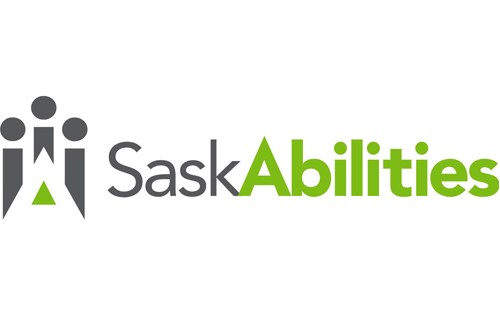Like many organizations, SaskAbilities had to close their doors and work remotely after the COVID-19 pandemic began. However, in spite of the restrictions, they have been working hard to continue vital community supports remotely. Aleks Hoeber, Program Manager, spoke about their efforts to keep connected through the crisis.
All of the program staff have been working from home, said Hoeber, and the programs have been continuing as well, with a remote plan for all of their services, including Partners in Employment, Partners in Mental Health and Well-being, the Crisis Support Team, Respite Services and Day Program Service.
“For example, for quality of life services, which includes our Day Program and the Drop-In Centre, we have created private Facebook pages, and within those pages we do every day, twice a day, Facebook Live, and they focus on everything from cooking and baking, music therapy is offered that way, sensory gym classes are offered that way.”
They also use Microsoft Teams to be able to call in people and do social interaction and social engagement activities, as well as offer classes. They have also offered yoga to both people they support through services and to staff.
Taking care of staff has been a priority during the crisis as well, Hoeber said. A staff member from Partners in Mental Health and Well-being has been jumping in on team meetings for a weekly meditation session to help people de-stress and cope with their anxieties.
Staff training has also been handled remotely, and they have also offered training, such as the Strengthening Families program, and Hoeber said that they have received great feedback. They are currently hosting crisis prevention training, and Hoeber said an advantage has been the greater reach of virtual training.
“We’ve been able to reach people provincially with that. We’ve been able to reach people from communities like Rosetown and Weyburn, Saskatoon and Regina, people from Yorkton. They’re learning how to prevent crisis how it relates to people with intellectual disabilities and developmental disabilities.”
Partners in Employment is still working as well, helping people apply and write resumes through Microsoft Teams. They are continuing job coaching if clients and employers are comfortable with it, and following government guidelines
They’re also remembering to have fun. She notes that they’re doing drive-by birthdays to help celebrate. They’re also visiting how they can to support clients in the nursing homes, which means window visits, seeing them through the windows.
For children with disabilities, they have been delivering kits to help give them activities they can do, Hoeber said.
Hoeber would like to thank caregivers for their efforts in getting people online and comfortable with technology, as well as being hands-on assistants for crafts and baking.
“Without the support of the caregivers, there would be no way we would be able to offer any kind of activities.”
They’re also grateful that they can continue to offer ways to connect, even remotely. She said that the people they support are often the most vulnerable individuals, and it’s important that they keep working to prevent isolation to maintain mental and physical health.
“I think people we support miss their friends, and they miss the staff, and the staff definitely miss seeing them. But I am impressed with how we have been able to adapt and still be able to connect with individuals, and still have recreation and leisure and social activities, just in a different and innovative way.”
It was a challenge for SaskAbilities because they were not used to working from home, and they had to quickly adapt and give staff the resources they need to work from home. Communication also changed, as they were used to seeing each other and their clients in person, and had to adjust quickly.
“Not only did we have to learn, and some of our staff have to learn how to use the technology, but also try to remotely teach other people how to use the technology.”
The biggest challenge was, and remains, clients who do not have internet access, said Hoeber. They have shared technology and devices with clients, and they have been making phone calls regularly and delivering kits.
“We’ve tried to become very creative and innovative in how we can connect to people who maybe do not have the internet and aren’t able to join us virtually.”
They intend to keep offering some remote programming after COVID-19 passes, whether it’s training or the day program. Hoeber said the biggest advantage is the ability to connect rural communities and people who have difficulty travelling.
“We want to make sure that option continues for people right through.”
Hoeber was impressed with how quickly they were able to adapt and handle programming virtually.
“I am very impressed with our staff and their resiliency to be able to adapt and take on the challenge of being able to meet the needs of their clients and the people they support... It takes a lot of courage to face people through a method like Facebook Live, where people are watching, and there’s pressure to be prepared and ready. But our staff has really stepped up to be able to do that, from training to delivering activities to offering job readiness classes”




